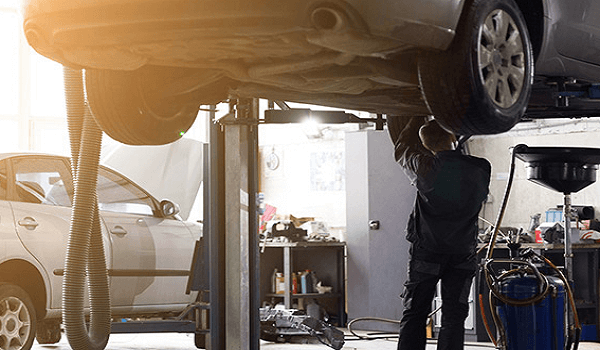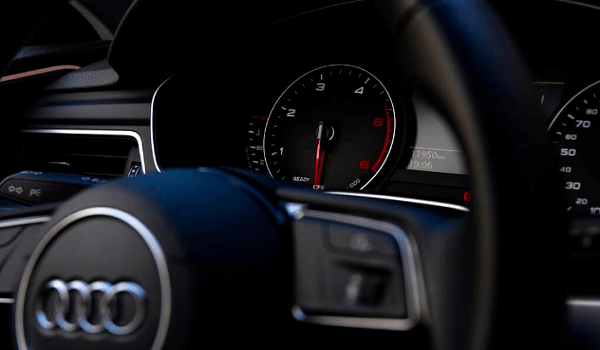Is Audi Expensive to Maintain – If you are considering buying an Audi, you might be wondering if it is expensive to maintain.
After all, luxury vehicles often come with higher maintenance costs than regular cars. In this article, we will take a closer look at Audi’s maintenance costs compared to two of its closest competitors in the luxury car market, Mercedes and BMW.
We will examine various factors that affect maintenance costs and provide a comprehensive analysis to help you make an informed decision.
What Factors Affect Audi Maintenance Costs?

Before we delve into the comparison, it is essential to understand the factors that can impact the Audi maintenance cost:
- Age and mileage of the car: Older Audi models or those with high mileage tend to require more frequent and extensive repairs.
- Type of repair or maintenance service: Basic maintenance services such as oil changes, filter replacements, and tire rotations are relatively affordable. However, more complex repairs such as engine or transmission replacements can be quite expensive.
- Audi’s warranty coverage: Audi offers a four-year/50,000-mile new vehicle limited warranty that covers repairs due to manufacturer defects. Extended warranties can also be purchased for additional coverage.
- Location: Maintenance costs can vary depending on where you live. In general, urban areas tend to have higher labor rates than rural areas.
Audi Maintenance Cost vs Mercedes

When comparing Audi and Mercedes maintenance costs, several factors come into play. Here are some of the key points to consider:
Overall maintenance cost
According to RepairPal, the average annual maintenance cost for an Audi is around $800, while the average cost for a Mercedes is around $1,100.
Warranty coverage
Both Audi and Mercedes offer similar warranty coverage. However, Audi’s four-year/50,000-mile new vehicle limited warranty is slightly better than Mercedes’ four-year/50,000-mile limited warranty.
Cost of parts
Audi parts tend to be more expensive than Mercedes parts. This can increase the cost of repairs significantly.
Labor rates
Labor rates can vary depending on the location. In general, Mercedes’s labor rates tend to be higher than Audi’s labor rates.
Audi Maintenance Cost vs BMW

BMW is another popular luxury car brand that competes with Audi. Here are some of the key points to consider when comparing their maintenance costs:
Overall maintenance cost
According to RepairPal, the average annual maintenance cost for an Audi is around $800, while the average cost for a BMW is around $1,000.
Warranty coverage
Audi’s four-year/50,000-mile new vehicle limited warranty is slightly better than BMW’s four-year/50,000-mile limited warranty.
Cost of parts
BMW parts tend to be more expensive than Audi parts. This can increase the cost of repairs significantly.
Labor rates
Labor rates can vary depending on the location. In general, BMW’s labor rates tend to be higher than Audi’s labor rates.
How to Reduce Audi Maintenance Costs?

While Audi maintenance costs can be higher than average, there are ways to reduce them. Here are some tips to help you save money on Audi maintenance:
- Follow the recommended maintenance schedule: Audi provides a maintenance schedule in the owner’s manual. Following this schedule can help prevent expensive repairs and prolong the life of your vehicle.
- Choose an independent mechanic: Audi dealerships tend to charge higher labor rates than independent mechanics. However, be sure to choose a reputable mechanic who has experience working on Audi vehicles.
- Consider purchasing an extended warranty: An extended warranty can provide additional coverage and help protect you from unexpected repair costs.
- Practice good driving habits: Avoid aggressive driving, and follow traffic rules to reduce wear and tear on your Audi’s components, such as brakes, tires, and suspension.
- Use high-quality parts: When replacing parts, opt for high-quality parts that are specifically designed for Audi vehicles. These parts may be more expensive, but they can help prevent future issues and prolong the life of your vehicle.
- Maintain your car’s exterior and interior: Regularly cleaning and maintaining your car’s exterior and interior can help prevent rust and other issues that can lead to costly repairs.
FAQs:
Luxury vehicles often come with a higher price tag, and the cost of maintaining them can also be a concern.
“Is Audi Expensive to Maintain?”, we’ll explore some of the most common questions related to Audi maintenance costs.
From understanding the factors that affect maintenance costs to comparing Audi maintenance costs with other luxury car brands, we’ll provide you with the information you need to make an informed decision.
So, let’s dive in and explore the most frequently asked questions about Audi maintenance costs.
Which Audi is the Cheapest to Maintain?

In terms of specific Audi models, the Audi A3 is often considered the cheapest to maintain. As an entry-level model, the A3 tends to have lower maintenance costs than other Audi vehicles.
According to RepairPal, the annual repair cost for the Audi A3 is around $741, which is lower than the average for luxury compact cars at $801.
However, it’s important to keep in mind that maintenance costs can vary depending on factors such as the age of the vehicle, mileage, and location.
The cost of repairs for certain parts and components may be higher for luxury vehicles in general, including the Audi A3.
Nonetheless, the A3 is a good option for those looking for a more affordable Audi model in terms of maintenance costs.
What Problems Are Audis Known for?

Like all vehicles, Audis may experience certain problems and issues over time.
Here are some of the most common Audi problems and how to solve them:
Oil Leaks
One of the most common issues with Audi vehicles is oil leaks. These can be caused by a variety of issues, such as a worn-out oil filter or a broken gasket.
If you notice an oil leak, it’s important to have it addressed right away to prevent further damage to your engine.
Electrical Component Issues
Audi vehicles may also experience issues with their electrical components. These can include problems with the battery, alternator, or starter motor.
If you notice issues with your vehicle’s electrical system, it’s important to have it inspected by a qualified mechanic.
Noisy or Vibrating Constant Velocity Axle Boot (CV Boot)
A constant velocity axle boot, or CV boot, is an essential component of your Audi’s drivetrain. Over time, these boots may become damaged or worn, which can cause noise and vibration in your vehicle.
It’s important to have a damaged CV boot repaired or replaced as soon as possible to prevent further damage to your vehicle’s drivetrain.
Damaged or Failing Spark Plugs
Spark plugs play a crucial role in the combustion process of your Audi engine. Over time, they may become damaged or worn, which can cause issues such as poor fuel economy or engine misfires.
Regularly replacing your Audi’s spark plugs can help prevent these issues from occurring.
It’s worth noting that not all Audis will experience these issues, and there may be other problems specific to your vehicle’s make and model.
Regular maintenance and inspections can help prevent many common Audi problems, and addressing issues promptly can help prevent more costly repairs down the line.
How Many Years Will An Audi Last?

The lifespan of an Audi largely depends on how well it is maintained and cared for over time. With proper maintenance, an Audi can last for 10-13 years or more and can run anywhere from 150,000 to 200,000 miles before requiring major repairs or replacement of key components.
Regular maintenance tasks such as oil changes, tune-ups, and regular inspections can help extend the lifespan of your Audi.
It’s also important to address any issues promptly, as neglecting problems can lead to more serious and costly repairs down the line.
Additionally, the age of your Audi can also impact its lifespan.
Older models may be more prone to wear and tear and may require more frequent maintenance or repairs.
With proper care and attention, even older Audi models can continue to provide reliable performance and longevity.
How Much is Audi 10-Year Maintenance?
According to data from RepairPal, the average maintenance and repair costs for Audi models during the first 10 years of service is around $13,222.
This figure includes routine maintenance tasks such as oil changes and brake pad replacements, as well as more significant repairs like engine and transmission work.
It’s worth noting that this cost can vary depending on the specific model of Audi, as well as factors such as mileage, driving habits, and location.
Audi vehicles may require more expensive parts and repairs due to their luxury status and advanced technology.
Compared to other luxury brands, Audi’s maintenance costs are slightly higher. According to RepairPal, Audi models cost about $987 more on average than other luxury brands during their first 10 years of service.
However, it’s important to keep in mind that Audi vehicles also tend to have a high level of performance and advanced features, which can contribute to higher maintenance costs.
Investing in regular maintenance and addressing issues promptly can help prevent more costly repairs down the line.
Summary: Is Audi Expensive to Maintain
So, is Audi expensive to maintain? Compared to its competitors, Audi’s maintenance costs are relatively average. While some repairs can be expensive, following the recommended maintenance schedule and practicing good driving habits can help reduce the frequency of repairs and prolong the life of your vehicle.
When deciding between Audi, Mercedes, or BMW, it’s important to consider factors beyond just maintenance costs, such as driving experience, design, and features.
Choosing a luxury car brand comes down to personal preference and individual needs.